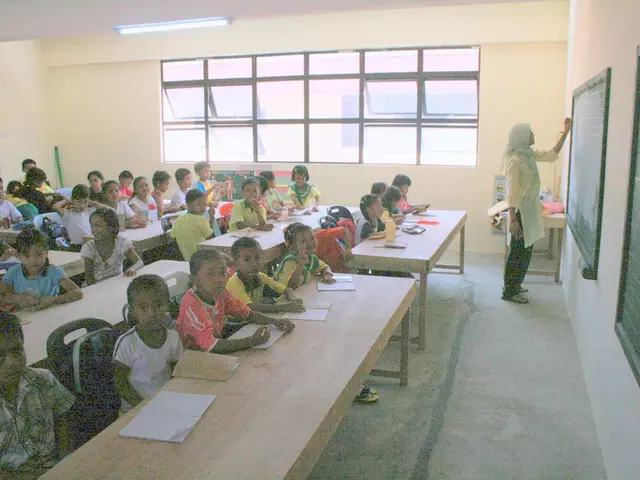Oxford Designates "Brainrot" as Word of the Year
In the digital age, a growing concern has emerged about the influence of online content on the brain functions and creativity of younger generations, particularly Generation Alpha. This generation, who have been practically raised in a digital environment from birth, are increasingly being labelled as victims of 'Brain rot,' a term commonly used among Gen Z and Gen Alpha to characterise the effects of overconsumption of trivial or unchallenging videos on social media.
The Oxford University Press announced 'Brain rot' as the Word of the Year for 2024, chosen by Oxford's language experts after a survey of over 37,000 votes, worldwide public discussion, and language data analysis. The Skibidi Toilet video, a prime example of content deemed to be "brain rot," was one of the primary sparks in the emergence of the 'brain rot' language online.
Excessive consumption of simplified, repetitive digital content can lead to a measurable decline in critical thinking skills. Simplified language and viral internet slang, often referred to as "brain rot words," weaken analytical abilities by discouraging deep engagement and complex problem-solving. This can result in reduced capacity for nuanced thought and detailed discussions over time.
The habit-forming nature of trivial content promotes rapid, shallow consumption, which shortens attention spans and hampers sustained focus on meaningful tasks. Emotional expression can also become blunted, as reliance on formulaic online content limits users' ability to convey and process complex feelings effectively.
A boost in digital 'brain rot' correlates with cognitive overload and emotional desensitization, where individuals become overwhelmed by constant streams of information yet emotionally less responsive. This overload cannibalizes cognitive resources needed for creativity and original thought.
With Generation Alpha increasingly using AI tools for decision-making and content generation, their ability to rigorously evaluate, challenge, or internally generate information declines. This passive consumption undermines creativity and independent critical thinking, risking permanent skill erosion.
An MIT Media Lab study revealed that users who rely heavily on AI tools like ChatGPT engage their brains less, showing reduced neural, linguistic, and behavioral performance during learning tasks. Younger users are especially vulnerable to these effects, which may impair long-term brain development and cognitive skills crucial for creativity.
Overuse of internet slang and shallow digital content may impair Gen Alpha's communication skills and social connectedness, impacting meaningful interpersonal interactions and potentially increasing social anxiety or fear of missing out (FOMO).
Educators note that Gen Alpha is deeply embedded in digital culture, making them prone to addictive patterns of consumption. This persistent exposure fundamentally rewires reward circuits in the brain, fostering compulsive use despite awareness of negative effects.
However, it's important to note that the negative effects of 'brain rot' are not inevitable and can be mitigated or reversed through screen time regulation, choosing educational, skill-building, and long-form materials, incorporating tech-free time for reading, hobbies, and social interaction, treating AI as a tool rather than a crutch, and practices like meditation and physical exercise to enhance focus and resilience.
In conclusion, the long-term effects of 'brain rot' on Generation Alpha include diminished critical thinking, impaired creativity, shortened attention spans, emotional detachment, and cognitive skill erosion, compounded by AI overuse. These effects threaten Gen Alpha’s cognitive development and creative potential if unaddressed, but mindful media consumption and balanced digital habits can help preserve and enhance their brain functions and creative capacities.
- While Generation Alpha continues to rely on AI tools for lifestyle decisions and content creation, their ability to evaluate, question, or generate information independently may decline, which can negatively impact their education-and-self-development and creativity.
- Excessive rent of simplified, repetitive digital content can lead to a measurable decline in critical thinking skills and technology-related creativity, as well as impaired communication skills and reduced cognitive skills crucial for education-and-self-development.




